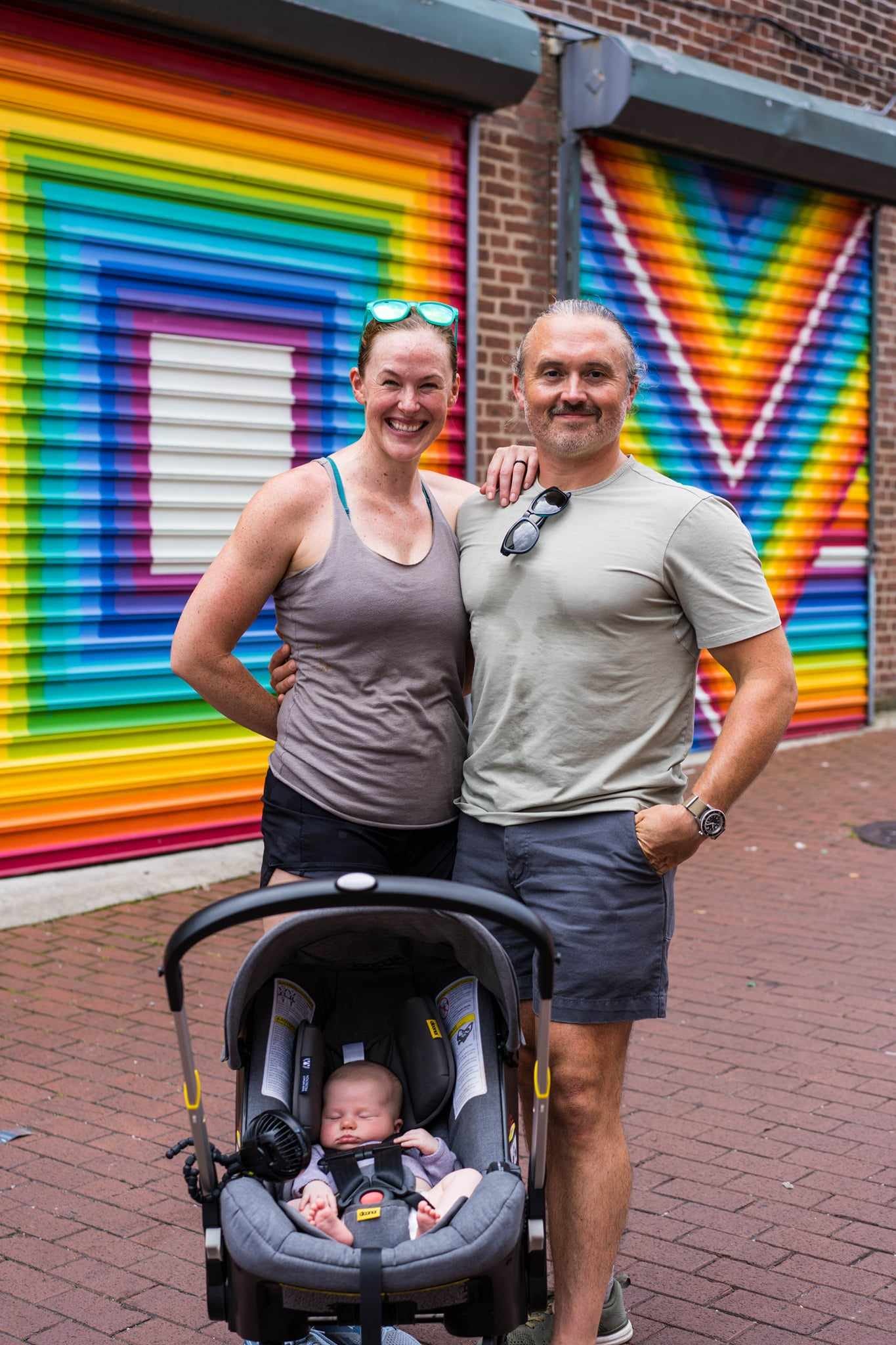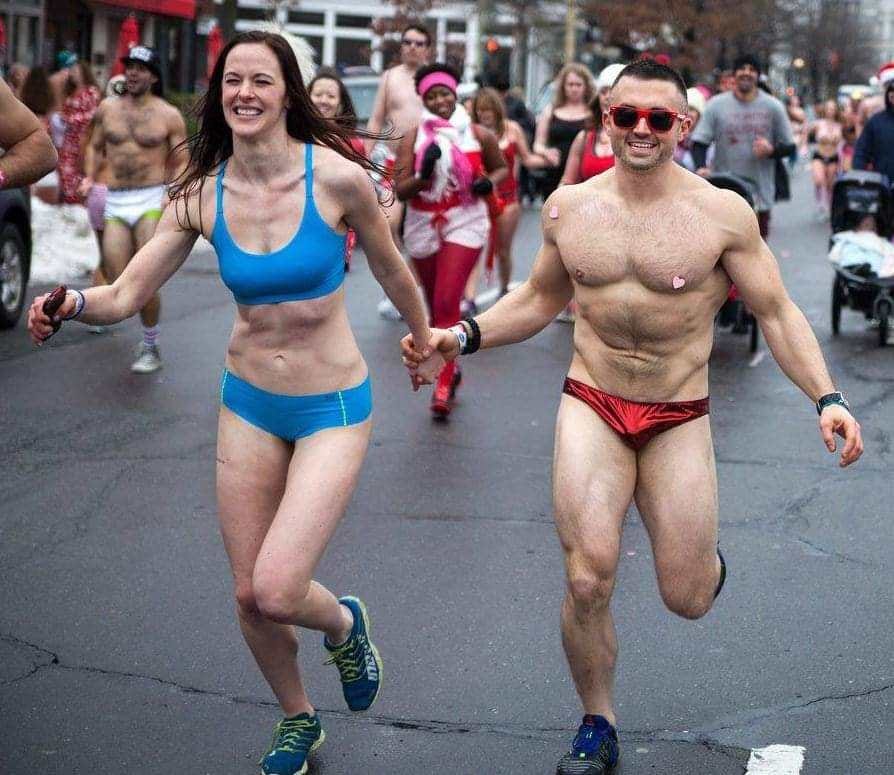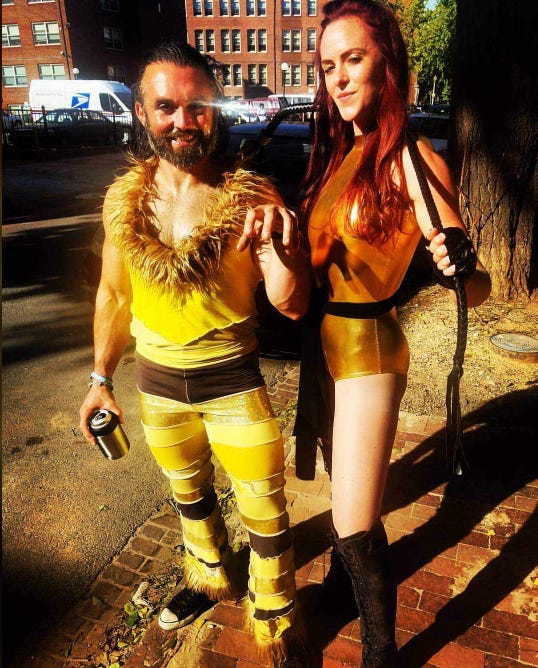Let’s Talk About the Effort/Reward Ratio
Hi friends,
I want to introduce you to someone today. Well, 2 someones. 2.1 someones (2 adults and an adorable little newborn).
Their names are Devin, Cassia, and Cam.
I used to work with Devin and Cassia when I lived in DC, and I consider them to be fascinating humans.
We’re not close enough for me to be able to tell you about their trials and triumphs, their deepest challenges, and their most soaring victories.
But I can tell you that they like working out.
Like...a lot.
They met when they were working at a gym (I think), and they both have a ridiculous amount of endorphins flowing through their bodies at any given time.
Sometimes they bike a few hundred miles for fun or to raise money for charity.
And I think they own somewhere between one and one hundred F45 studios? I don’t know. I just write about people. I don’t do anything sociopathic like call or text them.
The reason I’m writing about these two is because of a topic I’m presenting in my upcoming workshop for people with chronic high-functioning depression.
The topic? The effort/reward ratio.
This ratio – it’s something you really need to know about if you’re struggling with depression. Because depression skews the effort/reward ratio for basically every single thing in your life.
Depression makes everything seem harder – whether it’s getting out of bed, doing a load of laundry, or being the parent that you want to be.
And it reduces the reward you feel for doing anything positive.
So let’s get back to Devin and Cassia. They are (in my head) a perfect example of what it looks like when the effort/reward ratio is working in your favor.
Going to the gym, hopping on a bike, crushing an F45 class – all low effort for them.
They have fit, well-endorphined bodies that are in the habit of doing fitness-y things. They’re in the 99th percentile of fit Americans, so things are literally easier for them. Deadlifts that would be easy for Devin and Cassia would land me in the hospital.
And the reward? Built-in. The more you exercise, the more exercise feels good. Going to the gym is not only easier for them, but they get more reward from it than you or I do.
Before we all decide we hate them, let’s remember that they weren’t born this way. Devin and Cassia intentionally life-crafted. They chose to work in the wellness industry. They surrounded themselves with people who care about wellness. They’ve dedicated thousands and thousands of hours to becoming this way.
And when they started, they didn’t have this amazing effort/reward ratio working in their favor.
Maybe going to the gym was a real pain for the first year that they devoted themselves to it. Maybe they had to drag their resistant carcasses to the CrossFit box the first 20 times they went.
I can’t tell you their exact story, but we’re now getting into the realm of human story.
We all know this stuff. We know that we should move our bodies and reduce the amount of time we spend sitting. We know that we should eat foods that are grown on the Earth rather than Frankenfoods that are pumped out in labs. We know we should meditate and focus on our relationships and fill-in-the-blank.
But most of us don’t know how to do that. How do I shift my eating habits when I’ve become addicted to potato chips, just like the food scientists who engineered them wanted me to?
How do I exercise regularly when I come home from work so exhausted that I just want to collapse on the couch?
How do I?
How? How, how, how?
(Like, for instance, “How do I become more like Devin and Cassia?”
I have no tidy answers. I can’t, in a two-page essay, tell you how to become more like Devin and Cassia. But I can share ideas that might help you feel freer.
If you have depression, one of the greatest challenges you’re facing is a skewed effort/reward ratio.
So please stop thinking of yourself as lazy, unmotivated, worthless, undisciplined, or whatever other brutal things you say to yourself. Things are legitimately harder for you, and you get less reward than other people do from doing them.
And doesn’t it kind of make sense that you’re not doing the things you “should” when you think about it that way?
Self-loathing is out. Self-compassion is in. Come to my party if you want help making the shift.
And yes, I did just call a series of depression workshops a party. That’s how I feel, deal with it.
Love,
Keely
If you’re interested in my workshops for people with chronic high-functioning depression who aren’t getting the results they want from their current treatment protocols, you can find more info here: https://www.keelycopeland.com/depression-workshop
Two last photos of Devin and Cassia living their best life:







